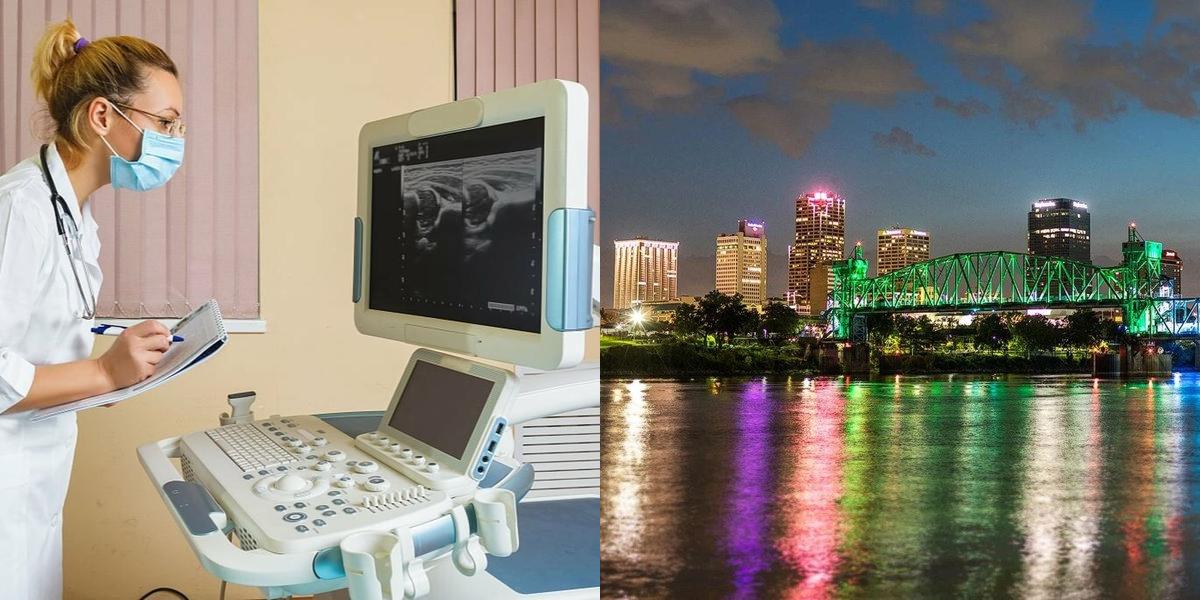How to Become a Medical Sonographer in Arkansas (2025)

If you're looking for a high-tech healthcare career in Arkansas that offers excellent pay without the need for a medical degree, becoming a Diagnostic Medical Sonographer is a fantastic choice. Arkansas hospitals and clinics employ hundreds of these skilled professionals who earn a median salary of $78,500 per year, according to the U.S. Bureau of Labor Statistics. This guide provides the definitive 5-step process for navigating Arkansas's education and voluntary certification landscape to launch your career in this vital role.
Where to Find Diagnostic Medical Sonographer Classes in Arkansas?
If you’re ready to start your sonography journey, Dreambound is your ideal resource. It’s the largest platform for finding and comparing vocational training programs across the United States. Dreambound offers an extensive list of Diagnostic Medical Sonographer classes in Arkansas, including programs in Little Rock.
Visit Dreambound to explore program details like cost, duration, and accreditation.
Career Paths and Opportunities after Becoming a Diagnostic Medical Sonographer
After certification, Diagnostic Medical Sonographers can explore several career paths, such as:
- Specialization: Focus on areas like obstetrics, vascular imaging, or cardiac sonography.
- Teaching or Research: Educate aspiring sonographers or contribute to advancements in diagnostic imaging.
- Management Roles: Oversee imaging departments or teams.
- Travel Sonographer: Work on short-term assignments in various healthcare facilities across the country.
Frequently Asked Questions
How much does a medical sonographer make in Arkansas?
In Arkansas, the average sonographer salary is $73,840 per year. Salaries can vary based on factors such as experience, location, and the specific healthcare facility.
What schools are accredited in Arkansas for sonography?
Several schools in Arkansas offer accredited programs in Diagnostic Medical Sonography. Examples include Arkansas State University, Baptist Health College Little Rock, and University of Arkansas for Medical Sciences (UAMS). These programs are accredited by the Commission on Accreditation of Allied Health Education Programs (CAAHEP) or the Joint Review Committee on Education in Diagnostic Medical Sonography (JRC-DMS).
How long does it take to become a sonographer in Arkansas?
To become a Diagnostic Medical Sonographer in Arkansas, it typically takes about two to four years. This includes completing an accredited educational program, which can be an associate's degree (two years) or a bachelor's degree (four years), and gaining clinical experience.
What do you need to become a sonographer in Arkansas?
To become a Diagnostic Medical Sonographer in Arkansas, you need to complete an accredited sonography program, obtain certification from the American Registry for Diagnostic Medical Sonography (ARDMS), and comply with any additional employer requirements. Certification is not legally required in Arkansas but is highly recommended by employers.
Final Thoughts
Becoming a Diagnostic Medical Sonographer in Arkansas is a fulfilling career choice with excellent job prospects and competitive salaries. By completing an accredited program, gaining clinical experience, and obtaining certification, you can enter this rewarding field with confidence. Whether you’re starting your journey or considering a career change, sonography offers opportunities for growth and specialization.
Ready to get started? Visit Dreambound to explore programs and take the first step toward your new career in healthcare.
Wondering if there's more? Perhaps these other articles will be more helpful if this one isn't exactly what you're after:

Athena is Co-founder and CEO of Dreambound.





